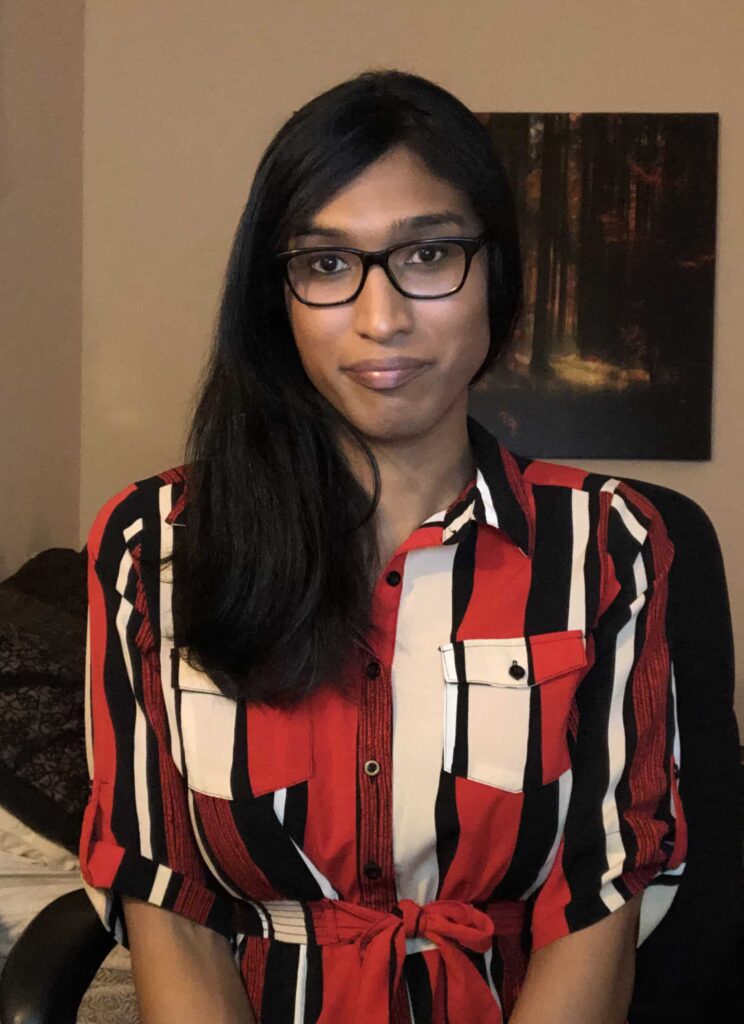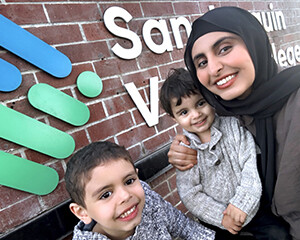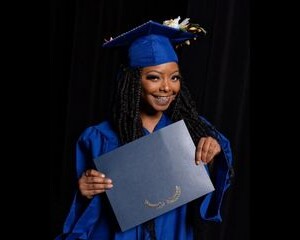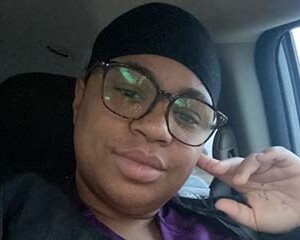Grad Q&A with Clinical Medical Assisting graduate Sadie Williams
 Sadie Williams’ story is not uncommon to the many graduates who have benefited from the well-known dedication of SJVC faculty and staff in the Clinical Medical Assisting program.
Sadie Williams’ story is not uncommon to the many graduates who have benefited from the well-known dedication of SJVC faculty and staff in the Clinical Medical Assisting program.
But that’s where the similarity stops. Sadie wants to tell her unique personal story of perseverance and courage in the hope that it will speak to others like her, learning how to truly grow up and own their life while simultaneously being faced with the challenges of being transgender.
Sadie was the only son of her military father and mother with three younger sisters. Read her story and see how SJVC came into her life at the right time to help her never give up on herself, to keep on going through whatever came her way and, just like anyone else, to reach her own personal goals.
Q: Tell us about yourself.
A: I was born in Okinawa, Japan. My Dad was a gunnery sergeant in the Navy, originally from Barbados, and my Mom was from the Philippines. They met there, and had four kids.
Q: And where did you fit in the order of children?
A: I was the firstborn and my three sisters were about 2 or 3 years apart.
Q: So you were old enough to remember Japan?
A: Sure. We lived there until I was eleven years old. But after that we moved almost every four years because Dad stayed in the military.
Q: Where did you move to next?
A: First we moved to Brooklyn, New York to be near my Dad’s mom; then we moved to another military base at Camp LeJeune, North Carolina. From there we moved to Camp Pendleton in California.
Q: Must have been hard moving all the time like that.
A: I think it set me up for good social skills. I experienced a lot of diversity and different environments. But I was always the new kid on the block.
Q: Where are you living now?
A: In Desert Hot Springs. It’s just a twenty-minute drive to the SJVC Rancho Mirage campus from here.
Q: When did you decide to pursue a career in Medical Assisting?
A: I grew up with women in my family in the medical field; my Dad’s mother and sister are nurses, and one of my sisters graduated from USC as a clinical researcher. But I tried to avoid this kind of work; I wanted to work in the tech industry, in software or hardware.
So I moved to Orange County and stayed 2 or 3 years. I tried, but it just wasn’t right. I began to work other jobs; like I got into manager training at a restaurant. But that’s when I got fired for being transgender. It was a tough time; I was transitioning and seven months into the job they let me go. I was so traumatized by the way they treated me I didn’t want to work anywhere. I thought it would be better to wait until I looked a little more feminine before I tried again. I was 29 years old at the time.
So I went to the Borrego Health Specialty Care Clinic where I could transition there with the help of the doctors and staff. They took great care of me. My doctor in particular influenced me a lot; he told me how intelligent I was and that I should be in healthcare because I have that kind of personality.
Q: So soon after you switched to looking for a way into the medical field?
A: Yes. I got into the Clinical Medical Assisting program and discovered that SJVC was a home away from home. It’s true I did struggle a lot because it was my first experience as a trans woman, but I never had a single issue with the school. They always treated me well. And the girl students were incredibly sweet to me, all very intelligent. They helped me grow up and out of my drama queen phase!
Q: How about the staff? Were there any ones in particular you want to mention that were especially helpful to you?
A: Oh yes. Ms. Rieko really was my touchstone. Ms. Debra and Ms. Cheyenne too. Ms. Debra was the most helpful in doing her very best on both tutoring or dealing with someone bothering me in class. But she also had the discipline – she would call me on the phone and put the guilt trip on me if I wasn’t being timely in my work.
Q: You graduated in January of 2021. What did you do after graduation?
A: I worked on the front line of the COVID care unit at an Urgent Care facility. Sometimes there were four-hour lines outside the front door. I was truly scared I would contract COVID; I wore one of those hazmat suits. But I never did.
Now I’m assisting in Internal Medicine.
Q: What do you enjoy most about your work now?
A: I enjoy many things, but I just love healing patients. I love the process of healing. I worked in the pain control area for awhile and was amazed watching these elderly patients be relieved from chronic pain. I also am one of those people who loves pressure and way too much to do; there’s always too much to do in a doctor’s office! I love micromanaging and there’s tons of stuff to micromanage.
Q: What do you find most challenging?
A: Well, I love the daily challenge of the work. But really the most challenging part is managing myself – my anxiety, or lack of confidence at times. I’m learning how to manage that every day.
Q: What advice do you have for students at SJVC now?
A: Do not give up on your dream. The staff will help you keep committed. They literally sent an email cheering us on to “Keep On Going!” no matter how hard it gets. Even when I was scared to do an internship they convinced me to do it. I could lean on them until I was strong enough to do it myself.
Q: And how about for those who are just thinking about going to school but still afraid?
A: You gotta believe there is a place for you and you have to put yourself out there. Make yourself vulnerable. I have recommended SJVC to several of my friends.
Q: Is there anything you would like to add?
A: Yeah. SJVC helped me grow up. Going to SJVC was my first experience as a trans woman; they saw beyond my problems and knew that I needed to stop being the drama queen and develop character. At first, I was the one in class who was negative about the way something was taught. But through them I learned not to focus on what I thought was wrong with the class or the teacher but just do the work. I learned how to be an adult, and ultimately how to be a professional so I could walk right into the working world again.
You might also like
More stories about
Request Information
All fields using an asterik (*) are required.


